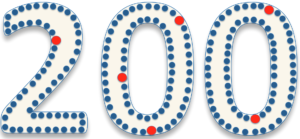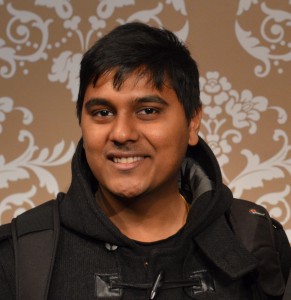6 out of 200: Energy efficient supercomputers
BLOG: Heidelberg Laureate Forum


Meet Karthikeyan P. Saravanan in this Q&A series with 6 out of 200 computer scientists and mathematicians participating at the 3rd Heidelberg Laureate Forum, August 23–28, 2015. 26 Laureates (Abel Prize, Fields Medal, Nevanlinna Prize, Turing Award) will attend the forum together with them. For a full week Heidelberg in Germany will be the hot spot of mathematics and computer science.
Name? Karthikeyan P. Saravanan
Nationality? Indian

Where are you based? Today I am at the Barcelona Supercomputing Center (BSC) and the Universitat Politècnica de Catalunya (UPC) in Spain. They are among the best institutions in the world for a PhD in Computer Architecture. My undergraduate work got me interested in Supercomputing research. So when I was accepted into a PhD program at BSC and UPC, this was the place to be for me. What I love about BSC is the broad range of things that the center works on. While my work addresses energy efficiency in networks specifically, I often talk to and exchange ideas with experts not only in other hardware layers of supercomputers, but also experts writing applications for next-generation machines.
What is your current position? PhD Student
What is the focus of your research? My research focus is on making next-generation supercomputers energy efficient. Advancements in supercomputing technology have opened new possibilities in designing and modeling problems with finer detail and greater accuracy. Hence with every generation supercomputers exponentially improve their throughput. Every generation of supercomputers so far had its challenges and roadblocks; today energy and power consumption are among the greatest. Large supercomputers already require
- many MegaWatts of power,
- an infrastructure to handle such power consumption,
- a substantial cooling system to dissipate the heat produced as a result and
- millions of dollars per month in electricity bills.
- Not at least to mention the environmental footprint of machines with such high power requirements.
Our lab in Barcelona Supercomputing Center (BSC) focuses on designing next generation supercomputers that are aimed at a lower energy footprint. My research specifically addresses the energy consumption of supercomputer networks and methods to optimize the same.
Why did you become a computer scientist? I always wanted to become a computer scientist; I pursued a career in research for its challenging nature and creative freedom.
Anything like a favourite project? That is my current project called Mont-Blanc, a European project where our lab investigates and analyzes power efficient supercomputers. The project is known for building the world’s first mobile technology based prototype supercomputers. I contribute towards energy efficient interconnect analysis and design for the future machines within the project. My recent internship at Samsung where I worked on machine learning for power management was also a project I really enjoyed doing.
What about your life beyond research? Barcelona has much to offer for a life beyond research. It is an amazing city with plenty of things to do, see and explore. When my friends and I aren’t watching the FC Barcelona football team in a match, or regional Indian movies, we usually spend our weekends exploring the city with friends.
Why did you apply for the HLF15? I have heard about HLF about two and a half years ago and I was already fascinated by the notion of a gathering of Fields medal and Turing Award winners with students and young researchers. It is a rare opportunity to be amongst so many like-minded peers .
What do you expect from this meeting? I have never attended a congress such as HLF, so I am not exactly sure what to expect. I go to Heidelberg with an open mind, hoping to meet amazing people and to learn a lot of new things.
Any Laureates on your list you would definitely love to talk to? I hope to speak with all of them if time permits. Although I am particularly excited about meeting Laureates such as Frederick Brooks who have worked in the field of computer engineering.
Wish you an inspiring time in Heidelberg!

